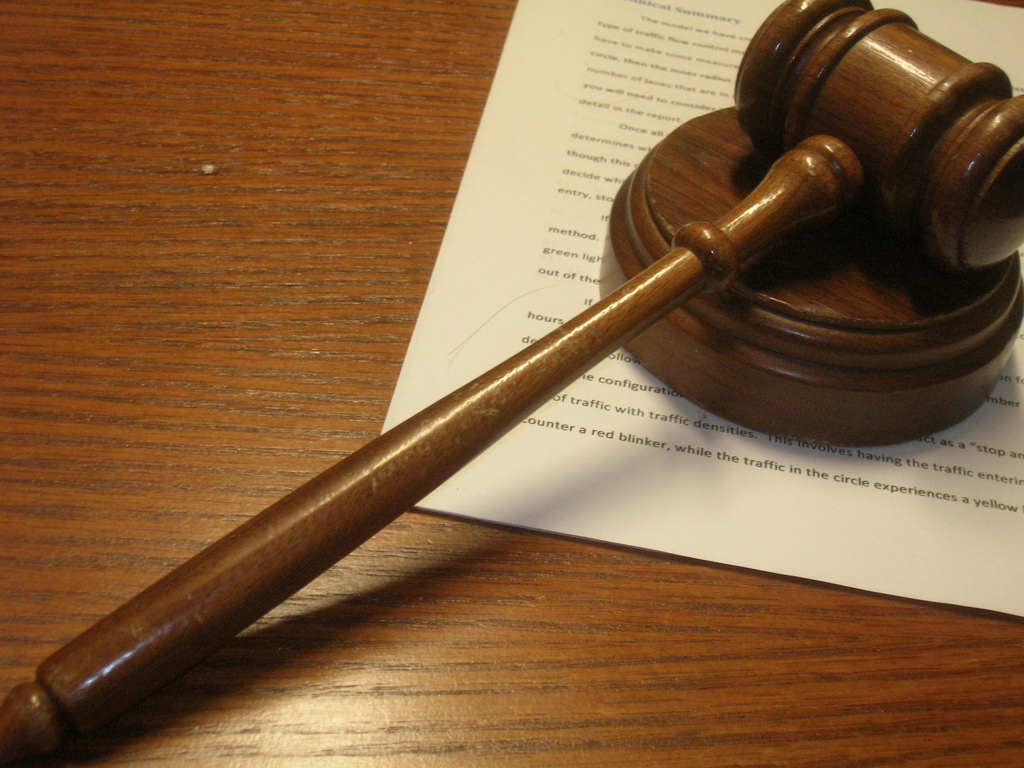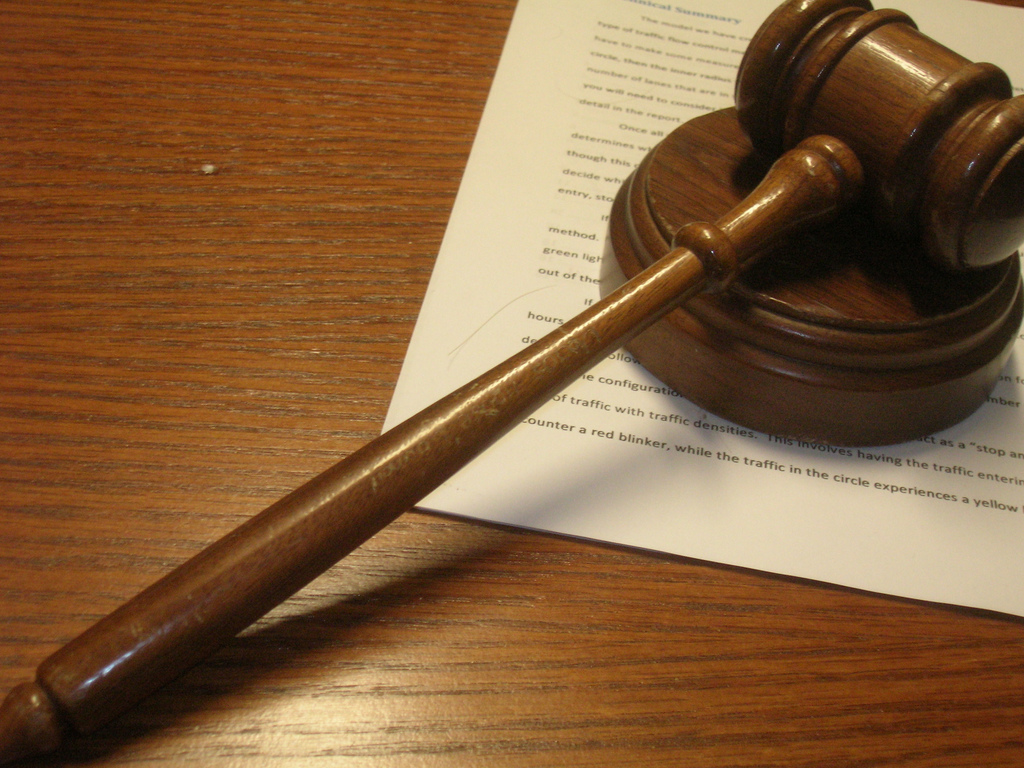
Surviving the BPTC – Injunctions
January 21, 2013
Surviving the BPTC – Revision
January 28, 2013So, having gone through the previous stages of litigation without resolution, you are now approaching trial. In the absence of a settlement at the courthouse doors, you will be sitting before a judge and having your case heard. There are three stages to a trial – preparation, the trial itself and then enforcement of the outcome.
Preparation
Leading up to trial you will have received directions from court as to how disclosure and the trial itself will be handled. There will be deadlines here that should be kept or extended through the Civil Procedure Rules (CPR) – although it shouldn’t affect your client’s case (unless an important piece of evidence is barred because it is late) it will be brought up when discussing costs.
Instructing counsel
Counsel can be involved in a case at several different stages. Counsel’s opinion is often sought early on in a case, before formally issuing, to find out the strength of the case being brought. This usually occurs in cases funded through Conditional Fee Agreements (CFAs) backed up with insurance, since a positive opinion will help obtain insurance.
Counsel may be instructed at a preliminary hearing and then be involved in the management of the case thereafter. It may be, as in the TV shows, that Counsel receives his instructions the day before the hearing although obviously the more time the better. Sometimes instructing Counsel at the last minute is unavoidable!
Drafting a brief to Counsel is a particular skill that you may be asked to demonstrate for an assessment. It is not easy (I have had to draft a few during my training contract and it does not get easier!) but there are a few things that could assist:
- Get the terminology right – Counsel should be referred to as ‘Counsel’ not ‘you’ when giving instructions and you should refer to yourself as ‘Instructing Solicitors’ not ‘we’ or ‘I’.
- Set out the background to the instruction first – explain who each of the parties are.
- Tell the case as a story, remember Counsel won’t know anything about what has happened. Include everything that might be relevant.
- Put each point in a separate paragraph and include headings if the case has several parts. This will help Counsel to refer back to your instructions.
- Include evidence (paginated) and refer to it. Don’t repeat something in the evidence – ‘As Counsel will see in letter dated’ is clearer than trying to describe the contents of the letter.
- Provide your opinion of issues arising, if you have one. It may be that you have done some preliminary research, which could assist. You are paying for Counsel’s time so minimise it!
- Tell Counsel what you what him to do – provide opinion, attend a hearing, advise on next steps, etc. Summarise this at the end.
It is important to be clear and concise in the instructions. If Counsel doesn’t know what you are asking or understand the case, he isn’t going to be able to do what you want him to!
Leading up to trial there are several things that should be completed or checked, and which you should remember for the exam, as follows:
- Directions compliance – as stated above, make sure any directions issued have been complied with.
- Costs estimates – if you are seeking costs from the other side (invariably you will be), an estimate of your costs should be submitted to court and to the other side in compliance with the CPR. This is of particular importance where the client has a CFA or legal aid, as special rules apply relating to recovery.
- Brief to Counsel – make sure Counsel is up to date and knows he is supposed to turn up!
- Trial bundles – this is a bundle of all the evidence you may need. It should be paginated and you will need at least a copy for your Counsel, the other side and the court. In practice, you may have a copy yourself, one for Junior Counsel one for your client and an extra one, just in case. Guess which job is given to trainees… It is very important not to forget the bundles on the day!
- Skeleton arguments – Counsel may be asked to submit a brief outline of their argument before trial. It is a good idea to read the other side’s to see what they will be putting forward on the day.
The trial
Although everything you have been learning about seems to be leading up to trial, there isn’t actually anything you need to know about the trial itself. Your advocacy skills will be examined separately so that is not an issue. What you should be primarily concerned with is costs. Costs are legal costs or what you will be billing for trial. Costs orders are how you get paid, pure and simple.
There are two ways in which costs may be awarded: standard basis and indemnity basis. The basis dictates in whose favour any ambiguity is ruled – ambiguity being whether the cost in question is reasonable or not. If a cost is unreasonable, the court won’t accept it and your client will have to pay (in fact, you will probably end up writing if off as your client won’t be happy paying for a cost that is ‘unreasonable’). The factors relating to costs are all contained in the costs CPR – I suggest you print a copy of this for the exam: you will be referring to it.
As referred to above, there are special rules relating to costs where a party is funded by a CFA (relating to reasonableness of uplift fee) or legal aid. You should be aware of these. The use of CFAs is slowly being curtailed but you should know the old rules relating to costs and CFAs as cases can go on for years before reaching trial.
Enforcement
Enforcement is an issue that should be considered at the outset and throughout the litigation process – there is no point spending money going to court if there is no hope of enforcing the outcome. Enforcement of a money judgement is like suing for a debt: the routes are bailiffs or insolvency. Obviously if the losing party doesn’t have the money to pay your client will lose out. Unfortunately, you won’t be getting your costs either and the client is unlikely to pay in full.
There are particular issues in relation to enforcement with regards to:
- Court – large sums of money can only be enforced in the High Court. Also, High Court Enforcement Officers have greater powers than County Court Bailiffs. Transfer up should be considered if required.
- Specific assets – if they can be moved, you may need to obtain an injunction so they don’t ‘disappear’ before the trial.
- Trust property – if the defendant owns property on trust for someone else you won’t be able to claim this. It is often difficult to know whether a particular item is on trust but trusts in land should be registered.
- Charges – if the Court grants your client a charge over property, there may be registration requirements, either at Companies House or at the Land Registry. Failure to do so may result in the charge being unenforceable.
- Insolvency – there may be a moratorium in place if the defendant has started insolvency proceedings. This prevents further legal action being taken. It is a known tactic for losing parties to become insolvent to frustrate the claimant obtaining their money.
- International issues – you may have to enforce abroad. This may be particularly complicated so be aware of the issues.
[one_third_last]
Most of the information you will need is in the relevant CPR so it will be important to get a handle on these before the exam.
[/one_third_last]Next week I will be writing about the Advocacy assessment – yes, public speaking!





